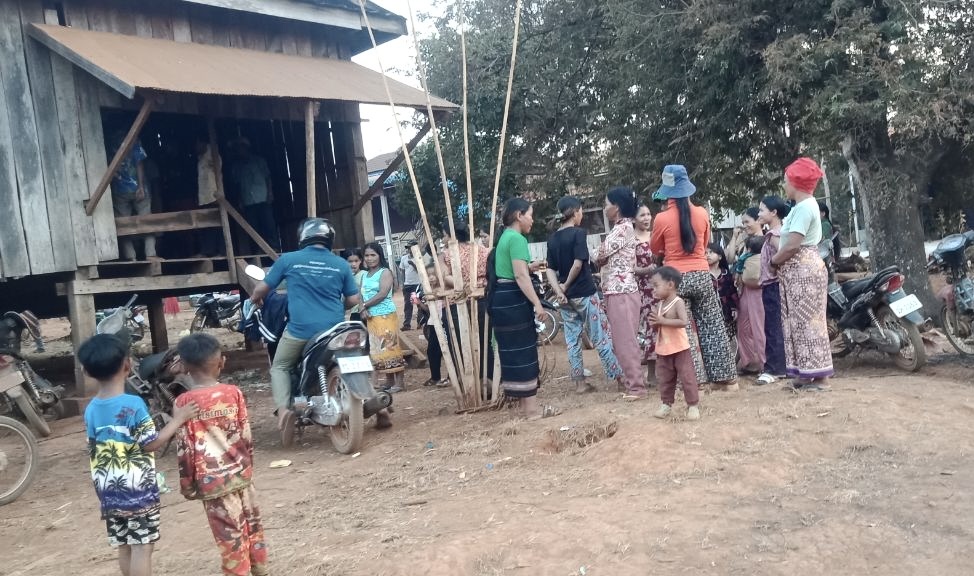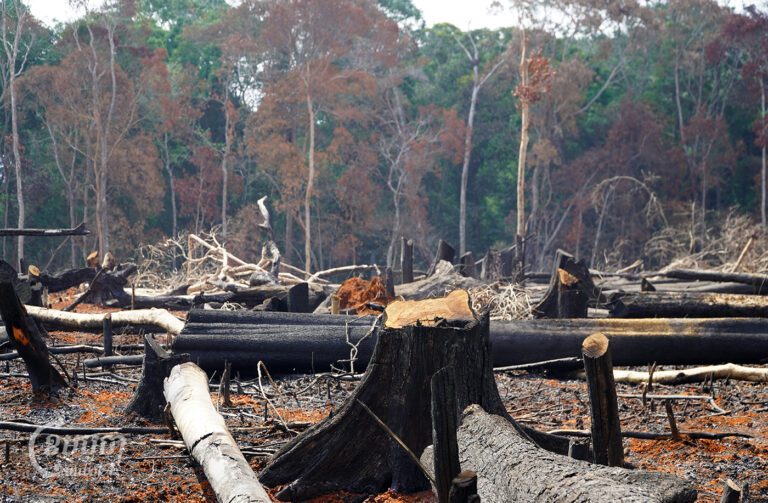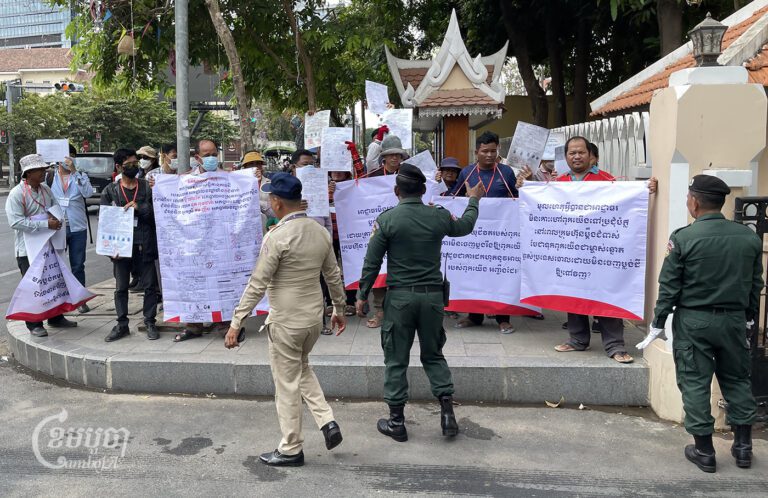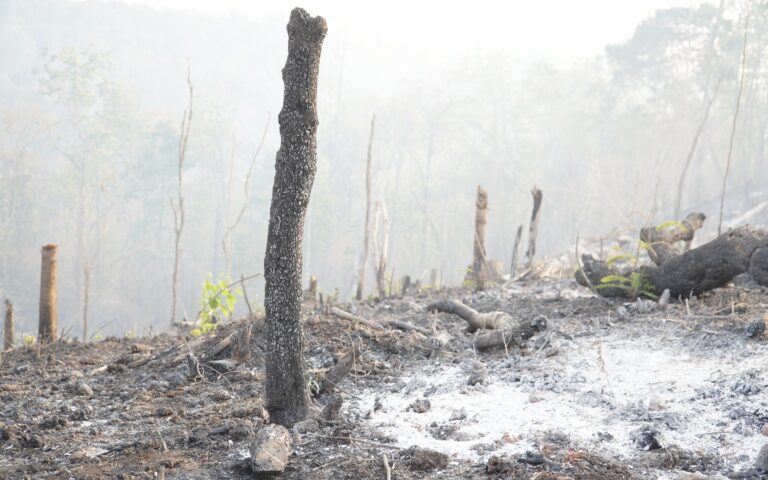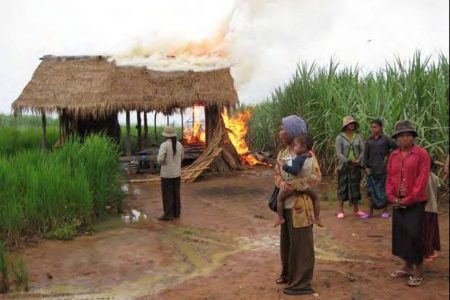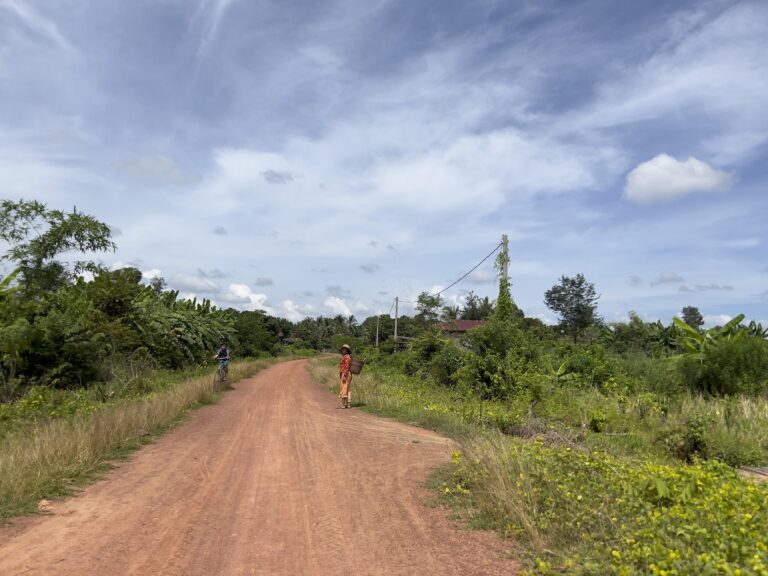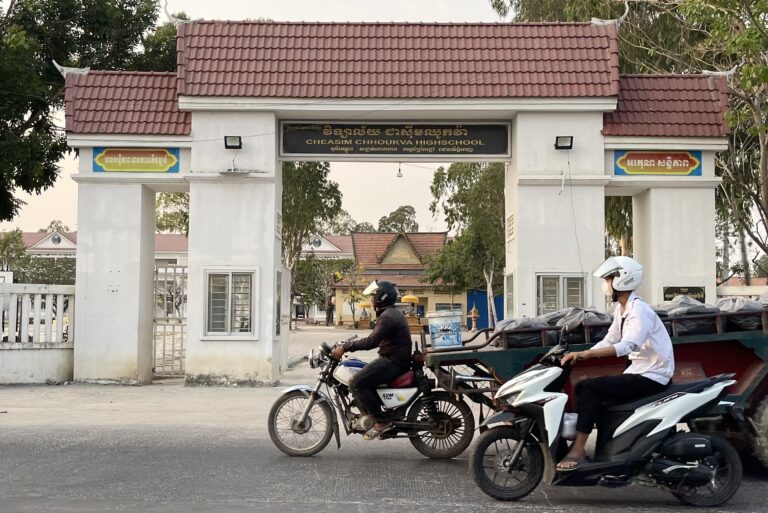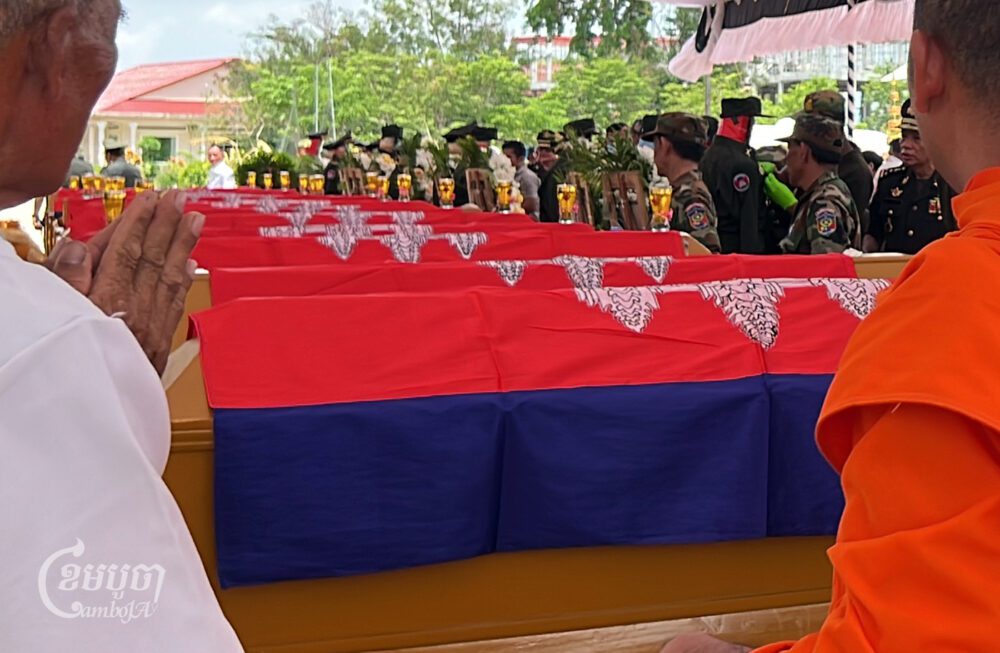A Jarai community has submitted a complaint to Nhang commune authorities of Ratanakiri’s Andong Meas district to seek a resolution over an alleged encroachment by a company on the community’s reserve land. This follows a protest they organized earlier this month.
“The company’s workers started cutting down trees, destroying our crops and blocking access to our land,” said Siev Kvavan, Kaet community leader. “They might have noticed [earlier] that the land did not have crops. But this is our communal land which is being preserved for the next generation.”
On February 6, around 100 people from Kaet village gathered to prevent workers from intentionally clearing the land for their own purpose. Kvavan told CamboJA News that the workers were 7 Makara Phary Co Ltd’s foreman and their syndicates, who encroached the community land, covering approximately 50 hectares.
The people own farmlands measuring about one hectare, which is used to plant cashew to sustain their livelihood but have instead been designated for clearing by the company.
“Jarai people in this [Kaet] community don’t have sufficient land to cultivate to sustain themselves, and the population is increasing. If they lose their land, it would be terrible for them in the future,” Kvavan says.
The encroachment marked the second incident since May 2023 when 7 Makara Phary workers destroyed the cashew farms belonging to indigenous people in a neighboring Jarai village in Tangche. Most of the people’s land had already been plowed with holes dug by the company to plant rubber seedlings.
In the meantime, people faced threats from the gun-wielding workers to sell their land below market price. An overwhelming number of Jarai people in Nhang commune are illiterate and have no knowledge of the law.
Deputy Nhang commune chief Heam Som Orn told CamboJA that the disputed land belongs to 7 Makara Phary, which obtained an economic land concession (ELC) from the government. The indigenous community “illegally” cleared and cultivated cashews after they saw no progress since 2006.
“The company was granted ELC, which means they have a legitimate right to work on the land. So, whether people like it or not, they [7 Makara Phary] will still clear [the land],” Som Orn said.
Open data source showed that in September 2006, the government approved a 70-year ELC in Ratanakiri’s Andong Meas district, leasing 8,655 hectares of land to Heng Development Co Ltd for agro-industrial plantation development. This land overlapped with the Jarai customary land.
A letter by the Council of Ministers revealed that a company named 7 Makara Phary, which received a 8,655 hectare ELC in Andong Meas district, including 9,800 hectares in Nhang commune, in 2011 had its ELC scaled down from 70 to 50 years.
It also appeared that the government granted the ELC to 7 Makara Phary, which previously belonged to Heng Development, according to an open data source.
The company, 7 Makara Phary, did not respond to questions via email. No phone numbers are listed in the Ministry of Commerce’s business registration record.
With regards to the community’s complaint, Som Orn said the commune is working with the district authority to assign a team to verify the landowners of the disputed land. The commune cannot make decisions because of the ELC.
“We cannot solve this matter now. We are waiting for the district authorities to check the land to see if it overlaps the company’s. We have already submitted relevant documents to the district to help with solutions,” he told CamboJA News.
Article 25 of the 2001 Land Law stipulates that the lands of indigenous communities include not only lands actually cultivated but also reserve land “necessary for the shifting of cultivation”, a form of traditional agriculture practice, which is recognized by administrative authorities.
Expressing concern over the government’s slow process to enforce the law, Kvavan is unsure if more injunctions would be granted to stop encroachments.
While the communal land titling is often delayed, indigenous communities in Cambodia fear that their land would be granted as ELCs to businessmen or “powerful people”. The National Assembly adopted a new environmental code in June 2023, which indigenous rights activists believe would undermine their long-standing land rights claims and allow outsiders to illegally grab their customary land.
Under the 2001 Land Law, land concessions responding to an economic purpose allow the beneficiaries to clear the land for industrial agricultural exploitation of land in Cambodia. However, the Cambodian government has full jurisdiction to cancel concessions if they remain inactive for more than 12 months.
Seng Sreng, the foreman who oversees the company’s work, denied that the workers cleared people’s farmland, noting that they have a right to develop the land based on the ELC agreement with the government.
“I only did the clearance on the company’s legitimate land, which is not part of [their land] at all. We will continue our work,” Sreng claimed. “We’ve the right to do so. It is the people who cultivated our land.”
Sreng declined to provide CamboJA details on the total land space which has been cleared by the workers. Instead, he asked the reporter to speak with the local authorities.
Meas Sareth, governor of Andong Meas District, shared that the district officials are preparing a team to measure the disputed land, though he refused to give a specific date. Confirming that 7 Makara Phary has an ELC, he said the district urged the commune authorities to mediate the issue at the initial stage.
“We need the commune to record proper data of how many families were affected. We are planning to measure the land soon,” Sareth said. “But people have cultivated the company’s land, which was granted ELC.”


